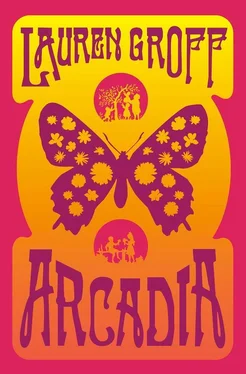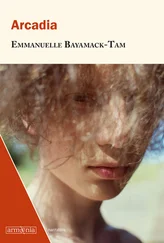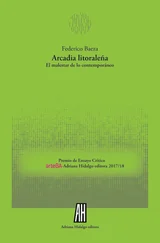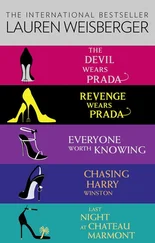Lauren Groff - Arcadia
Здесь есть возможность читать онлайн «Lauren Groff - Arcadia» весь текст электронной книги совершенно бесплатно (целиком полную версию без сокращений). В некоторых случаях можно слушать аудио, скачать через торрент в формате fb2 и присутствует краткое содержание. Год выпуска: 2012, Издательство: Hachette Books, Жанр: Современная проза, на английском языке. Описание произведения, (предисловие) а так же отзывы посетителей доступны на портале библиотеки ЛибКат.
- Название:Arcadia
- Автор:
- Издательство:Hachette Books
- Жанр:
- Год:2012
- ISBN:нет данных
- Рейтинг книги:3 / 5. Голосов: 1
-
Избранное:Добавить в избранное
- Отзывы:
-
Ваша оценка:
- 60
- 1
- 2
- 3
- 4
- 5
Arcadia: краткое содержание, описание и аннотация
Предлагаем к чтению аннотацию, описание, краткое содержание или предисловие (зависит от того, что написал сам автор книги «Arcadia»). Если вы не нашли необходимую информацию о книге — напишите в комментариях, мы постараемся отыскать её.
Arcadia — читать онлайн бесплатно полную книгу (весь текст) целиком
Ниже представлен текст книги, разбитый по страницам. Система сохранения места последней прочитанной страницы, позволяет с удобством читать онлайн бесплатно книгу «Arcadia», без необходимости каждый раз заново искать на чём Вы остановились. Поставьте закладку, и сможете в любой момент перейти на страницу, на которой закончили чтение.
Интервал:
Закладка:
Grete hops on her toes toward the door and mashes her face into Sharon’s thighs.
Sharon’s son, Frankie, comes out. He is an owlish boy, half crushed under his enormous backpack. He hands Bit one of his shoes and says, It came off. When Bit kneels to put the shoe back on, Sharon smoothes down Grete’s fine white hair, and Bit sees with a pang that he’d forgotten again to brush it this morning. Grete is a dandelion gone to spore.
Sharon takes an elastic from her own short hair and pulls Grete’s back into a ponytail. She smiles at Bit, the skin by her eyes crinkling, and she’s no longer the rumpled middle-aged mother he sees every day; she is pretty. No harm done, she says.
When Bit stands, Sharon hands him the coffee and kisses both kids on the forehead. See you this afternoon, she says. Be good.
I am good, Frankie says in a hurt little voice.
I’m bad! says Grete and gives a wicked laugh.
They go off, Grete holding Bit’s hand, Frankie clutching Grete’s, into the streaming tides of people. Bit’s own Kid Herd of two. In the morning crush, the children are swallowed by legs and rears, smashed with purses and briefcases. In a marl at a stoplight, Bit bends and lifts them in both arms. The children lean their heads on his shoulders and breathe into his jawbone. Their school is squat and brick, shielded by scraggly plane trees that Grete hugs solemnly, one by one, before they go inside.
The teacher is a plump woman so tender-looking that she seems as if her skin would bruise if she were yelled at. She looks at Bit and gives a little tremulous cry. Oh, my, she says. Are you okay? Are you getting your sleep? Are you eating? Oh, you don’t look so good.
I’m fine, I’m fine, he says, and fine, fine repeats in his head as he escapes back into the chill. Around him, a spin of bodies in dark coats, tapping thumbs on pads, pressing phones to heads, settling buds into ear canals, projecting an invisible shield of music as they move through the crowd, digital companionship warmer than the bodies around them. Every soul on the street is sunk within its body. Sometimes Bit imagines that he, alone, bears witness to the world.
It amazes Bit how well he can teach with a fraction of his attention. Better, perhaps, than when he is fully invested in what he’s doing. These children of blog and text go uneasy near focus. They clam up. He is more relaxed when he can’t give a damn, and they are too. They learn.
In the red glow of the darkroom, skinny, odd-looking Sylvie tongs paper from one bath to another. Bit stands beside her. Her skin is marked with raised moles, and she smells like powder, coffee, honey shampoo. She looks up at him. I love this, she says. The darkroom. I didn’t think I would. Digital’s just so much easier, you know?
I know, he says. That’s why I don’t do it.
Sylvie gives a private smile. That’s your reputation, Professor Stone, she says. Nobody says you’re easy.
He is startled; did he mishear? There are too many ways to read what she said, three at least, and Sylvie always seems to speak in layers.
He backs away through the rubber curtain, and into the bright room where the water bubblers gurgle. He sits on the table and lets his students slowly flock to where he is. How sweet they are; the boys are inches taller than Bit but sit in the chairs to reestablish Bit’s eminence. The girls play with their hair, watch him from the corners of their eyes. They know his story somehow: since Helle vanished, he has become more handsome than ever to these susceptible young women, the weight of his tragedy transforming his soft features into something noble, suffering. He feels himself flush and speaks to shake his embarrassment.
All right, my friends, he says. Out with your notebooks. This one is the toughest yet.
Most weekends he gives his classes a mission. Make a camera obscura in your room and draw what you see. Photograph strangers on the subway without letting them know what you’re doing. Stand in the pitch-black film closet and roll twenty rolls of film, blind. When you come out, write down everything you’ve thought of in there without self-editing.
His job is officially to teach the lost art of the darkroom; analog studies in the Photography Department. Or what used to be called simply Photography, all that chemistry and film, most recently downgraded from a requirement. Digital is just so much easier. It has been years since he taught an advanced course, the wet-plate, the large format. For most of his students, his classes are way stations into a hobby. But his job, as he understands it, is to help his students see : to make them pay attention, slow down and appreciate what they’re doing. This is something they can use in life.
This weekend, he says to the eight faces arrayed at the table, you will go on a digital fast. He catches himself: he’s almost said yoga, vestige of Arcadia. Doubleplusgood duckspeak he sometimes calls the old language, laughing, when it comes out despite his censor. I was raised in a commune, he’ll say, and he’ll feel a bit treasonous and tell some of the funnier or sadder stories; the summer they all got hepatitis from eating the watercress in the stream near the Family Quonset loo; what happened to baby Felipe, whose white crease in the fat brown neck remains indelible in Bit’s memory, even thirty-five years later.
What’s a digital fast? says Sylvie. There is a designated speaker in every class, and she is it for this one. Awkward girl, overeager. He has to be extra gentle with her. Her eyes fill with tears after a curt word.
No cell phones, Bit says. No computers, no MP3s, no GPS, no social networking, no e-mail, no whatever else it is that you do and frankly I don’t understand. If you have other coursework, try to do it all tonight or put it off until Sunday night, if you can. Let’s see how long you can resist the siren song of the outside world. Have a response paper to your digital fast for me on Monday. One page. Written by hand, of course.
Some make faces; others, the hipsters, smile. They love being throwbacks. They wear the jeans and teeshirts and sneakers and sunglasses he wore when he came to the city so many years ago from Arcadia. He reminds himself that the hippies seemed just as childish in their own time.
Sylvie calls out as she stands and gathers her things, No problem. Smiling, her bone bracelets dully clinking on her wrists, Sylvie sings out, Easy, easy, easy.
When he woke that first morning without Helle in bed beside him, he was almost calm. He made excuses in his head: she had gone out on a long walk in the afternoon and visited an old friend, stayed too late to come home. Once in a while, she’d do this. Regina and Ollie owned a cupcake emporium in the city and a frilly apartment by the river where Helle had her own key. Maybe she was housesitting their cats and forgot to tell Bit. Or maybe she went up to Jincy’s in the suburbs, Jin just having given birth to her twins; and Helle forgot to tell Bit. He didn’t want to push beyond this thought for what followed; the drugs again, scourge of Helle’s twenties, the desperation, the needle marks between the toes.
To avoid the apartment, Bit took Grete to the children’s museum all day. The two of them ate an early dinner out. It was passive-aggressive, Bit could admit. He’d wanted Helle to come home to a cold apartment and worry about where they were, the same way he had barely contained his panic, a tightness in his chest, all day. It was dark outside when he and Grete came home; but the apartment, also, was dark.
By night, he grew worried. Grete finally fell asleep after calling out Mommy! for an hour. Bit sat at the heavy old rotary phone he would never replace for a cell and dialed their friends. Nobody had seen her. He called family. Erik, an engineer in California, was grumpy, still at work. Handy was having dinner with his fourth wife, Sunny, who told Bit that Handy was saving his voice for a concert, could she take a message, and hung up when Bit shouted, It’s Handy’s daughter, dammit, put him on the line. Astrid was at the Tennessee Midwifery School. Nobody had heard from Helle for a week.
Читать дальшеИнтервал:
Закладка:
Похожие книги на «Arcadia»
Представляем Вашему вниманию похожие книги на «Arcadia» списком для выбора. Мы отобрали схожую по названию и смыслу литературу в надежде предоставить читателям больше вариантов отыскать новые, интересные, ещё непрочитанные произведения.
Обсуждение, отзывы о книге «Arcadia» и просто собственные мнения читателей. Оставьте ваши комментарии, напишите, что Вы думаете о произведении, его смысле или главных героях. Укажите что конкретно понравилось, а что нет, и почему Вы так считаете.

![Andrea Höst - In Arcadia [Touchstone - Extras]](/books/56405/andrea-host-in-arcadia-touchstone-extras-thumb.webp)










